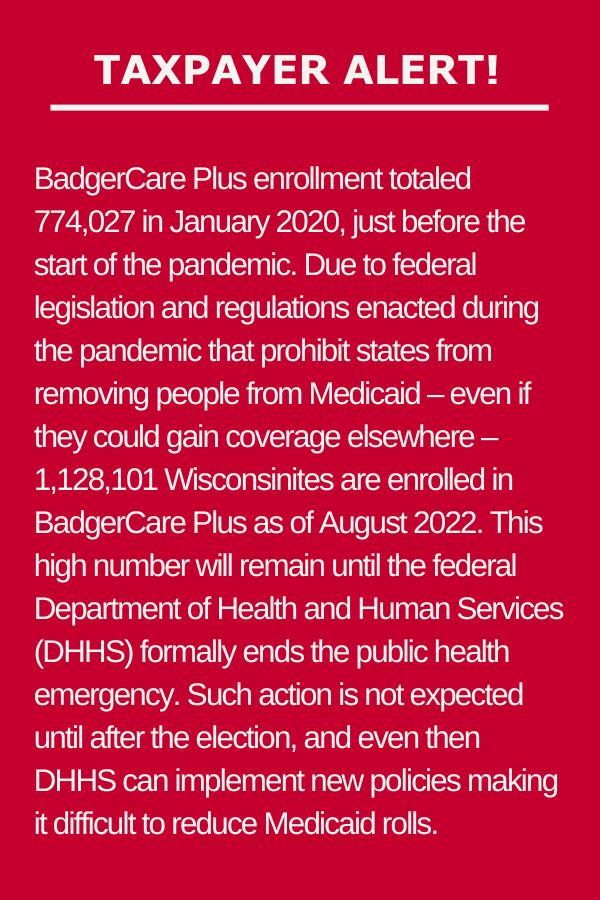Click here for a printable version of our report or read the full version below.
State Agency Fast Facts:
- The Department of Health Services (DHS) is a sprawling state agency with a total annual budget of $15 billion (over $4 billion funded by state taxpayers) and over 6,300 employees, with multiple, major functions:
- managing the state’s Medicaid (safety net health insurance) program;
- operating state facilities for the mentally ill and severely disabled;
- planning for, and managing, public health situations, such as COVID.
- DHS both delivers health care for certain populations and oversees the care delivery of over 1.3 million Medicaid recipients through managed care organizations and health systems across the State.
- While the DHS budget has been generally static from a GPR perspective, this is largely due to federal resources in the various COVID legislation. However, the DHS budget has seen rapid growth largely due to Medicaid: each budget typically requires approximately $500,000,000 in new GPR resources simply to maintain the program.


Did You Know?
As a result of conservative reforms enacted by the Legislature in 2017, recipients of the Supplemental Nutritional Assistance Program (“SNAP”, or food stamps) are required to participate in the Foodshare Employment and Training program. This means they must be screened for drugs and routed into treatment if the screenings and subsequent testing indicate a substance abuse disorder. Governor Evers proposed eliminating these requirements in his last budget. The Legislature rejected his proposal.
Reform History:
In 2011, after federal passage of the Affordable Care Act (“ObamaCare”), Governor Walker and the Legislature carved a Wisconsin path to health care reform. Rather than accepting federal money – and federal mandates – our State created a national model of 100% access to health insurance coverage by providing a true Medicaid safety net combined with the insurance exchange.
This conservative approach reduces the dependence and permanence of federal entitlement programs and protects Wisconsin’s private insurance market by keeping premiums lower.
Close Call…
Since taking office in 2019, Governor Evers has proposed on multiple occasions to expand Medicaid and add approximately 90,000 enrollees to the government assistance rolls, likely on a near-permanent basis.
IRG Wants to Know:
If you were in charge for a day, what reforms would you make to the UW? Email Alex Ignatowski, IRG’s Director of State Budget and Government Reform, at [email protected].

